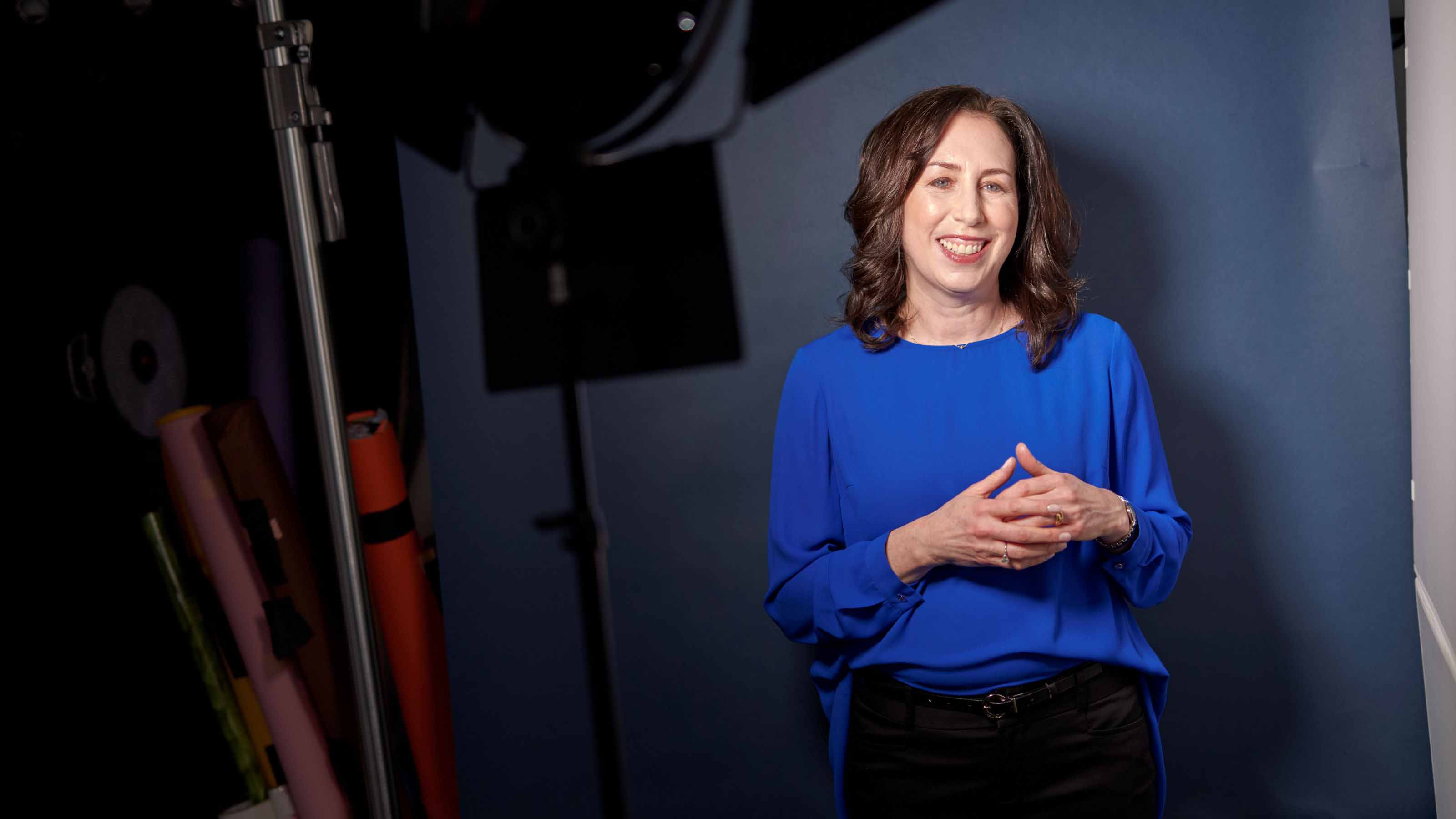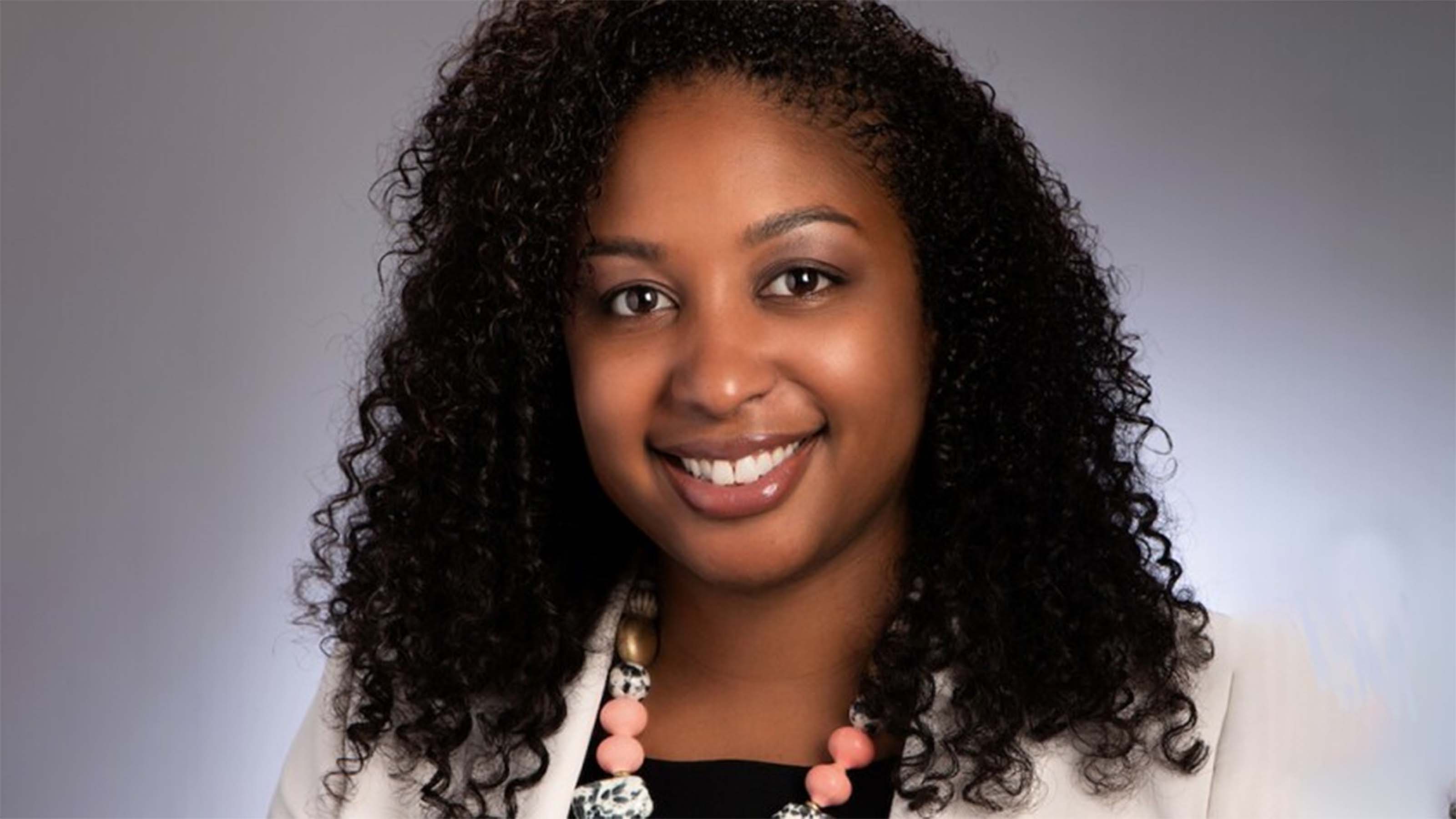Coping with Loss of Healthcare Coverage
Families USA’s Cheryl Fish-Parcham joins our hosts Ryan Ermey and Sandy Block to discuss how folks can find medical coverage in the face of job loss. Also, the pair share ways to avoid a new wave of ID theft and talk credit reports and tax software in a new edition of Deal or No Deal.
Profit and prosper with the best of Kiplinger's advice on investing, taxes, retirement, personal finance and much more. Delivered daily. Enter your email in the box and click Sign Me Up.
You are now subscribed
Your newsletter sign-up was successful
Want to add more newsletters?

Delivered daily
Kiplinger Today
Profit and prosper with the best of Kiplinger's advice on investing, taxes, retirement, personal finance and much more delivered daily. Smart money moves start here.

Sent five days a week
Kiplinger A Step Ahead
Get practical help to make better financial decisions in your everyday life, from spending to savings on top deals.

Delivered daily
Kiplinger Closing Bell
Get today's biggest financial and investing headlines delivered to your inbox every day the U.S. stock market is open.

Sent twice a week
Kiplinger Adviser Intel
Financial pros across the country share best practices and fresh tactics to preserve and grow your wealth.

Delivered weekly
Kiplinger Tax Tips
Trim your federal and state tax bills with practical tax-planning and tax-cutting strategies.

Sent twice a week
Kiplinger Retirement Tips
Your twice-a-week guide to planning and enjoying a financially secure and richly rewarding retirement

Sent bimonthly.
Kiplinger Adviser Angle
Insights for advisers, wealth managers and other financial professionals.

Sent twice a week
Kiplinger Investing Weekly
Your twice-a-week roundup of promising stocks, funds, companies and industries you should consider, ones you should avoid, and why.

Sent weekly for six weeks
Kiplinger Invest for Retirement
Your step-by-step six-part series on how to invest for retirement, from devising a successful strategy to exactly which investments to choose.
Ryan Ermey: With millions of Americans out of work and plenty of others fearing a potential layoff, understanding your options for finding affordable health insurance is more important than ever. Cheryl Fish-Parcham of Families USA joins the show to talk coverage options in our main segment. On today's show, Sandy and I discuss ways to protect yourself from a new wave of [Link>identity theft and talk credit reports and cheap beer in a new edition of Deal or No Deal. That's all ahead on this episode of Your Money's Worth. Stick around.
- Episode Length: 00:28:21
- Links and resources mentioned in this episode
- SUBSCRIBE: Apple Google Play Spotify Overcast RSS
Ryan Ermey: Welcome to Your Money's Worth. I'm Kiplinger's associate editor Ryan Ermey, joined from afar by senior editor, Sandy Block. And Sandy, is it the basement or are you upstairs these days?
Sandy Block: I'm in the attic and I'm starting to wonder, we've had a really cool spring, but once summer really hits, I may have to relocate, because it's pretty warm up here.
From just $107.88 $24.99 for Kiplinger Personal Finance
Become a smarter, better informed investor. Subscribe from just $107.88 $24.99, plus get up to 4 Special Issues

Sign up for Kiplinger’s Free Newsletters
Profit and prosper with the best of expert advice on investing, taxes, retirement, personal finance and more - straight to your e-mail.
Profit and prosper with the best of expert advice - straight to your e-mail.
Ryan Ermey: Do you guys have a finished attic? I feel like ours was just always exposed fiberglass and things like that.
Sandy Block: Yeah, it's finished. I'm just being literary saying it's an attic. It's a real room.
Ryan Ermey: It's a top floor atrium, actually.
Sandy Block: Yeah. Our house is one of those little ones that was built after World War II. And over the years, somebody busted out the top, which is really common up here. It's finished. I'm not toiling away in a garret, although that sounds romantic, I'm not.
Ryan Ermey: Well it's me and the porcelain Italian cheetahs in the dining room here, just the three of us. And today we're talking about the COVID-19 pandemic, so many things have arisen as a result of it, like a humongous ripple effect that's really affected every part of people's personal finances and what we cover here at Kiplinger's.
Ryan Ermey: And ... something that we're writing about, is that there has been a marked uptick in identity theft, and a certain type of identity theft, right, Sandy?
Sandy Block: Right. Well, ID theft in general has gone up substantially since everybody went home. And that makes sense, because people are spending more time online, they're doing all of their shopping online and they're doing their work online and they're really scared.
Sandy Block: There's all kinds of scams going on where people get phishing expeditions to say that there's a cure, or a vaccine, or something like that. But even before the coronavirus hit, there was a substantial uptick, according to Javelin Strategy, and a really insidious ID theft where someone hijacks your online accounts.
Sandy Block: And what's scary about this is they then use this information, instead of creating a new account, which oftentimes will trigger an, alert or be impossible if you have a credit freeze. But if they're just using your information to hijack your account and buy things, you won't notice that until you start seeing unusual activity on your credit card. That's a type of fraud that the actual number of victims went down last year, according to Javelin, but the amount of losses went way up. It's something that people need to be aware of. And as I said, all kinds of ID theft are going up, and this one probably will, too.
Ryan Ermey: Yeah. And just for illustration, the FTC got more calls about ID fraud, ID theft, in April than they had for the first three months of the year combined. Once all of this data pans out, and we have more of a backward looking thing at the end of the year, we expect to see a pretty market uptick in these types of scams.
Ryan Ermey: And so the first line of defense, I should say, is if you're being bombarded with these calls and emails that are hoping to capitalize on COVID-19 related confusion, maybe it's when you're getting a refund. Or, like you said, Sandy, a vaccine, or a cure, or testing, or masks or whatever, always be aware of who is sending these things. Take a look at the actual email addresses, never just call a number, or email reply back directly to any email that you think looks fishy, always go to that company's website that this person purports to be and contact them directly.
Ryan Ermey: Because if they're on a phishing expedition, they want you to open that email, to follow their links, to get the information. If it's from a legitimate source, they're not going to care. If it's from the IRS looking to get information, to send you a check, you can go ahead and contact the IRS directly. You should never be calling back the IRS if they call you on the phone. The IRS isn't calling you on the phone.
Sandy Block: They're not calling you anyway. That's right.
Ryan Ermey: So be suspicious, be vigilant. And that is going to be your first line of defense.
Sandy Block: Right. And another thing we suggest is if you're shopping online, consider using a digital wallet, such as Apple Pay, or Google Pay to make your purchases. The reason that's a good idea is that the merchant doesn't get your credit card information. And as a result, if there is a data breach and those seem to be happening all the time, then your credit card information isn't vulnerable for theft. That's one thing to consider.
Sandy Block: And the other thing, sort of basic is, whenever I shop online, the merchants always asked me if they want me to save my credit card information. And obviously that's convenient, because you don't have to type it in every time, but don't do it.
Ryan Ermey: Right.
Sandy Block: Don't let them save your credit card information, you don't want that sitting around. And the other thing, and this is obvious, but it's just worth mentioning, particularly with respect to account takeovers, is you got to check your bank and credit card statements really regularly for signs of fraud.
Sandy Block: If you think you've been a victim, you're going to want to freeze your credit reports. The sooner you catch some problems, the easier it is to fix. So I've talked to some ID theft experts who say they check their bank accounts every day. You can set up alerts, so every time there's an expense, you get it. Maybe that's overkill, but you really need to be vigilant about how these accounts are being used, so you can catch suspicious activity really fast.
Ryan Ermey: Yeah, every day seems like a little bit of overkill for a normal person. I feel like sometimes we're telling people to be really big geeks.
Sandy Block: Well, you're on your computer all day anyway. But, another way you can get around that if you don't want to get notified every time you or your spouse puts gas in the car, you can arrange to get a notice if an amount over a certain level is charged.
Ryan Ermey: Right.
Sandy Block: There's all kinds of tools that you can use to get alerts if something unusual [happens] that doesn't require you to look every single day.
Ryan Ermey: And look, I'm happy to tell people to do the geeky stuff, we're geeks about finances.
Sandy Block: Oh, totally. Oh yeah, oh yeah.
Ryan Ermey: Give me a break. We're going to be doing this. We're saying you don't necessarily have to, but it's always good to be financially geeky. It's a way to keep yourself from losing money. And it's a way to keep yourself to keep more money that you're actually making. And it's a tease for our third.... this is a professional operation we have here, Sandy. This is a tease for the third segment of today's show, where we'll be talking about taking a look at your credit reports. And we can have you guys get geeky about that too, so stick around. Coming up, Cheryl Fish-Parcham breaks down health insurance options for folks who find themselves out of a job. Don't go anywhere.
Ryan Ermey: We are back and we're here with Cheryl Fish-Parcham. She is the director of access initiatives at Families USA, which is a national nonpartisan consumer healthcare advocacy organization. And we're talking today about what folks can do to find affordable healthcare. Cheryl, thank you so much for coming on.
Cheryl Fish-Parcham: Thank you for addressing this important topic.
Ryan Ermey: Our pleasure. Millions of people have lost their jobs as we all know, and as a result, their health insurance coverage as well. If you lose your job, what's the step you should take to make sure that you're still covered?
Cheryl Fish-Parcham: Well, first you want to find out when your current coverage is set to expire. You'll want to act before then, if at all possible, to make sure that you'll have coverage as soon as it ends.
Cheryl Fish-Parcham: You're going to have a lot of options, so maybe get out a paper and pencil and write them down, so that you can check them out. You should get a notice from your employer that tells you these options. But because of the virus, we know that there's been a delay in getting notices out to people. There might be someone in your employer's HR department that can help, too.
Cheryl Fish-Parcham: Here's a list of the options that you're going to want to explore, so write these down. One is COBRA, one is enrolling in a spouse, or partners employer's plan, one is signing up for Medicare, if you've delayed Medicare enrollment while you were working, another is Medicaid, or CHIP for your children and another is marketplace coverage.
Sandy Block: So Cheryl, let's start with COBRA, because as I understand it, COBRA basically means you can continue the current coverage that you had, which means you get to keep all your doctors and everything. But I also understand that it's prohibitively expensive. Is that right, and are there any ways to get around that?
Cheryl Fish-Parcham: It generally is very, very expensive. You're paying usually the cost that your employer paid before, as well as your own costs for that coverage.
Cheryl Fish-Parcham: Right now, there is no subsidy for COBRA. Occasionally an employer will pay for part of the cost for a period of time, as part of a severance package, but usually you're paying the full price. Now, Congress is considering paying laid off workers premiums during this health emergency. And that was part of the HEROES bill. The Senate hasn't acted on this yet, so you could always think about calling your legislators and see whether they will act on this in the upcoming packages.
Cheryl Fish-Parcham: The other thing to know about COBRA and a reason that sometimes people accept COBRA, even though the premiums that might be costly, are perhaps you've already met the deductible. And if you bought a new plan elsewhere, you'd have to meet a deductible again. Another reason that people often want COBRA is that they may be comfortable with a network of doctors and specialists that they see and they don't want to change. You'll have to think about your personal circumstances as you make that decision.
Ryan Ermey: Another option that you mentioned was getting on a spouse's health insurance plan. Do you have to wait for open enrollment to do that? Or can you enroll in a spouse's plan sooner?
Cheryl Fish-Parcham: You don't have to wait for open enrollment. If you've recently lost other coverage, there's a special enrollment period when you first lose other coverage when you can enroll in your spouse's, or partner's plan. Usually that period lasts 30 days. The time has been extended, though, during this public health emergency. We don't yet know when the public health emergency will end and you want to avoid an interruption in coverage. So it's best to enroll as soon as possible.
Sandy Block: So Cheryl, let's talk about options for people who don't have access to a spouse's plan and can't afford COBRA. If you're interested in buying on the exchange under the Affordable Care Act, do you have to wait for open enrollment for that?
Cheryl Fish-Parcham: Not if you've recently lost job-based coverage. Throughout the country, if you've lost job-based coverage in the last 60 days, you don't need to wait. You qualify for a special enrollment period. For other people, it depends on where you live. Some states have extended enrollment for this crisis and others haven't.
Sandy Block: And a followup to that, Cheryl, is as I understand it, some people qualify for tax credits that can significantly lower their premiums under an ACA policy. Who's eligible for those types of tax credits?
Cheryl Fish-Parcham: Well, people with incomes who were above the poverty line and below four times the poverty line might be eligible. And just to give you an idea, for one person this is roughly between $12,500 a year and $50,000 a year of income. For a family of four, it's roughly people with income between $25,750 $103,000 a year. Unemployment does count as income for this program.
Ryan Ermey: So let's talk a little bit about Medicare and Medicaid. Those are the last two programs that you mentioned. What are the options if someone has delayed taking Medicare? If they lose their job, what are their resources now in terms of getting enrolled in Medicare?
Cheryl Fish-Parcham: There is an enrollment period now to enroll in Medicare when you first lose your job. And it's important to enroll so that you don't pay higher premiums later from having missed your enrollment period in Medicare. There are Medicare counseling programs throughout the country that can guide you through the process. And if you go to medicare.gov, you'll find links to them.
Sandy Block: Cheryl, I think a lot of people think that they're ineligible for Medicaid because they make too much money. But I'm wondering is that necessarily the case? Particularly if you lost your job, or you have children? Are people maybe ruling this out when they might actually be eligible for it?
Cheryl Fish-Parcham: Many people become eligible for Medicaid when they lose jobs, because Medicaid eligibility is based on monthly income, not annual income. So if you have a sudden drop of income and your income is say a thousand dollars a month, or less, or slightly higher than that, even, you might qualify for Medicaid.
Cheryl Fish-Parcham: This isn't so in every state. About 36 states have expanded Medicaid to cover adults based on their income. In other states, it's really only available to families that have children. Even if you don't yourself qualify for Medicaid, your children might qualify for Medicaid, or they might qualify for the child's health program, children's health insurance program, CHIP.
Sandy Block: And Cheryl, if you're not sure, what's the easiest way to find out if you're eligible for Medicaid, or if your children are?
Cheryl Fish-Parcham: You can contact your state Medicaid agency, which may be the fastest way to enroll in Medicaid. If you go to healthcare.gov, it will provide screening tools, or direct you to your state agency for screening tools that will help you figure out roughly whether you might be eligible for Medicaid or not.
Ryan Ermey: Well, all fantastic advice, Cheryl. Before we let you go, where can people find all of the wonderful things that Families USA is working on?
Cheryl Fish-Parcham: Our website is familiesusa.org. And thank you very much for that. We have a fact sheet that goes through some of the information that we've talked about today called Are You Uninsured During the COVID-19 Crisis?, what you need to know about finding health insurance, getting tested and getting care.
Ryan Ermey: Well, fantastic. We'll be sure to link to that in our show notes. And Cheryl, thank you again so much for coming on.
Cheryl Fish-Parcham: Thank you so much for having me. Take care.
Ryan Ermey: A free case of beer just for filing your taxes? It sounds like a deal, right? Well, maybe not. Stick around.
Ryan Ermey: We are back. And before we go, Sandy and I are going to bring to you another edition of Deal or No Deal. And I'm going to go first, because I have a deal that I teased in the opening segment. In a joint action, the three national credit reporting agencies in the United States, that's Equifax, Experian, and TransUnion, have announced that they will be offering free weekly credit reports to all Americans from now until April 2021.
Ryan Ermey: This took effect April 20th. So you've missed out on a month of this already. I'm sure some of our listeners are all over this, but the deal is you used to be able to get one report from each bureau, every 12 months, and now you can get it once a week. And this is a deal, because checking your credit reports and monitoring them is a really good way to stay on top of your credit. What should we be looking out for here, Sandy? I think you know a lot of the usual culprits.
Sandy Block: Right. Well, first of all, I don't think you necessarily want to order your credit reports once a week, because that could be overwhelming.
Ryan Ermey: It's a lot.
Sandy Block: There's all kinds of ways you could play this. You could maybe order one one week, another, a couple of weeks later. It's like creating your own credit monitoring system for no cost. It just means that if you want to look at your credit reports, you can, you don't have to wait a year. But if you do get your credit reports, you're going to look for anything that looks weird.
Sandy Block: Variations of your name, an unfamiliar address. Certainly any accounts you never opened, or delinquencies that you don't recognize. One of the things that happens even when there isn't ID theft is sometimes credit reports get nixed. You have a similar name to someone else's, so someone else's information appears on your credit report, which isn't good if they haven't been paying their bills. Just look for anything unusual, because, again, the sooner that you attack problems, the sooner that you can get them solved.
Ryan Ermey: Right. You'll also see a list of businesses that have looked at your credit file. It's safe to ignore what are called soft inquiries, which are people looking at your score, but that doesn't actually affect your credit score. A hard inquiry does affect your credit score. And a hard inquiry from a name that you don't recognize is worrisome, because it means that someone has pulled your credit to follow up on an application.
Ryan Ermey: If it's from unfamiliar, it could mean that someone is trying to open an account in your name. You might get a hard inquiry if you were opening an account, or if you were applying to live somewhere, if you see something that looks unfamiliar, that's a problem. We would encourage you to dispute errors in your credit report as soon as possible. As Sandy just mentioned, obviously that is a process. We'll link to a story in the show notes that that walks you through there, because that would be like a whole other podcast if we were going to tell you exactly the intricacies and the hoops that you have to jump through for that. But suffice to say, the earlier, the better. Sandy, do you have a deal for me, or not?
Sandy Block: Well, I'm going to let you decide, Ryan…
Ryan Ermey: Oh, I like that.
Sandy Block: ... if this is a deal. As we've said, many times, the tax filing deadline this year has been extended to July 15, which means tax software companies are still trying to sell their stuff, because they are still people who haven't done their taxes. And TaxAct, which is one of the big three -- there's TurboTax, H&R Block, and TaxAct is probably the third largest.
Sandy Block: They're putting out a promotion where they say that if you're 21 or older and you use their tax software, buy their tax software, they will throw in a case of delicious natural light beer just for filing your taxes with TaxAct. And it says, "After all, who couldn't use a little refreshment right about now?" I'll withhold my opinion on how refreshing I think a Natty Lightn is, but Ryan, deal or no deal. What do you think?
Ryan Ermey: Well, Sandy, that all depends, I suppose, on how much TaxAct costs. Because I know for a fact, they say they'll rebate up to $24 for a 24... a case is 24, so $24 for 24 Natty Lights. Now there was an era in my life when I was drinking a lot of Natty Lights and Keystones and at the liquor store that I used to go to on Admiral Wilson Boulevard in Camden, New Jersey, you could get 30 Natty Lights for $12.
Sandy Block: That's a problem right there, but here's the thing. And you raised a good point, if you're drinking Natty Lights, you're probably not making a lot of money. And if you're not making a lot of money, then you might think that you qualify for TaxAct's free product. But, in fact, according to our review of tax software, which we will link to in the show notes, even if you make, say, $30,000, if you claim deduction for student loans, many young people who this promotion is…
Ryan Ermey: Very, very common.
Sandy Block: Very common. And this promotion is aimed at that group, I'm pretty sure, you would have to upgrade to TaxAct Deluxe. And TaxAct Deluxe can cost you nearly $70 to file a federal and state return. You're getting bad beer and you're paying 70 bucks, when in fact you can go to IRS Free File, and if you make less than $69,000, you can file for free, your federal tax return and possibly your state. And you don't get any beer, but you'll have plenty of [money] left over that you can buy the kind of beer that you really want.
Ryan Ermey: Right, so theoretically, you could file for free and then have 70 bucks to spend on 80 beers. You would have so many more Natty Lights.
Sandy Block: Maybe 24 better beers.
Ryan Ermey: No, forget that, Sandy.
Sandy Block: I know.
Ryan Ermey: Get a couple of kegs of Natty after that.
Sandy Block: I'm just saying you'd have a lot more. I don't mean to despair, what's the word I'm looking for, disparage. I didn't mean to disparage Natural Light. I know people who drink it. But if you have $70, you have more choices. And seriously, that was the big issue we had with TaxAct in our software review, is that you are forced to upgrade for a fairly common reason, that would cause a lot of people who really don't have a lot of money to have to pay more than they should to file their taxes. So again, go to Free File and use the extra money for something you really like.
Ryan Ermey: Well, Sandy, it just so happens that I do have in the Washington Post years ago, I published a ranking of cheap canned beers available at Washington, D.C., bars. And Natty light did happen to come in 10th out of 10 in my rankings. Now the Washington Post, unfortunately for yours truly, is behind the paywall, so I can't see what I wrote.
Sandy Block: I can. Yes.
Ryan Ermey: But can you read to me what I wrote about Natural Light at the time?
Sandy Block: "It's never a good sign when the can is designed to make a beer look cold, but that's what the Natty silver and blue motif is here for. To trick you into thinking you're enjoying a frosty brew, even though you just pulled the can out from under your buddy's couch."
Sandy Block: Oh, this on your taste: "If you drank this in college, you know exactly how cold this beer needs to be at all tolerable. Even on the verge of freezing, it still tastes like carbonated sewer water." All right, we're going to get calls on this.
Ryan Ermey: I'll tell you off the air what they made me change that from. Carbonated sewer water was a nicer version of what I wrote.
Sandy Block: You gave it a one for the can and a one for the taste. So yeah.
Ryan Ermey: Yes. Yeah, it was a three part composite score out of 15 based on ABV, can design and taste.
Sandy Block: It ranks above Schaefer's, which I believe we used to say was the one to have when you're having more than six, right?
Ryan Ermey: I thought it was below Schaefer's. Yeah, Schaefer's was nine. It's reverse order.
Sandy Block: Okay, all right. I'm sorry.
Ryan Ermey: How dare you. Genesee Cream Ale came number one for anyone wondering. So anyway, go check out my writings from the Washington Post, if you're a D.C. listener and think that we're going to be going back to bars anytime soon. And otherwise, be sure to check out the show notes for all of the great Kiplinger content related to what we chatted on the show. And, if you're under the threshold, file for free and then buy whatever delicious beer is your particular cup of tea, or beer, as it were.
Ryan Ermey: That'll do it for this episode of Your Money's Worth. For show notes and more great Kiplinger content on the topics we discussed on today's show, visit Kiplinger.com/links/podcasts. You can stay connected with us on Twitter, Facebook or by emailing us at podcast@kiplinger.com. If you liked the show, please remember to rate, review and subscribe to Your Money's Worth wherever you get your podcasts. Thanks for listening.
Links and resources mentioned in this episode
Profit and prosper with the best of Kiplinger's advice on investing, taxes, retirement, personal finance and much more. Delivered daily. Enter your email in the box and click Sign Me Up.

Block joined Kiplinger in June 2012 from USA Today, where she was a reporter and personal finance columnist for more than 15 years. Prior to that, she worked for the Akron Beacon-Journal and Dow Jones Newswires. In 1993, she was a Knight-Bagehot fellow in economics and business journalism at the Columbia University Graduate School of Journalism. She has a BA in communications from Bethany College in Bethany, W.Va.
-
 How Much It Costs to Host a Super Bowl Party in 2026
How Much It Costs to Host a Super Bowl Party in 2026Hosting a Super Bowl party in 2026 could cost you. Here's a breakdown of food, drink and entertainment costs — plus ways to save.
-
 3 Reasons to Use a 5-Year CD As You Approach Retirement
3 Reasons to Use a 5-Year CD As You Approach RetirementA five-year CD can help you reach other milestones as you approach retirement.
-
 Your Adult Kids Are Doing Fine. Is It Time To Spend Some of Their Inheritance?
Your Adult Kids Are Doing Fine. Is It Time To Spend Some of Their Inheritance?If your kids are successful, do they need an inheritance? Ask yourself these four questions before passing down another dollar.
-
 PODCAST: Tax Breaks for College Finance with Kalman Chany
PODCAST: Tax Breaks for College Finance with Kalman ChanyPaying for College Paying for (ever-pricier) college is a challenge that this consultant meets head on with highly specific guidance.
-
 PODCAST: Car-Buying in an Inflated Market with Jenni Newman
PODCAST: Car-Buying in an Inflated Market with Jenni NewmanBuying & Leasing a Car With cars both scarce and expensive these days, what to do if you want – or need – a new ride? Car-buying strategist Jenni Newman of Cars.com shares some tips. Also, more on the magical 9% savings bond.
-
 PODCAST: How to Find a Job After Graduation, with Beth Hendler-Grunt
PODCAST: How to Find a Job After Graduation, with Beth Hendler-GruntStarting Out: New Grads and Young Professionals Today’s successful job applicants need to know how to ace the virtual interview and be prepared to do good old-fashioned research and networking. Also, gas prices are high, but try a little global perspective.
-
 PODCAST: Is a Recession Coming?
PODCAST: Is a Recession Coming?Smart Buying With a lot of recession talk out there, we might just talk ourselves into one. We take that risk with Jim Patterson of The Kiplinger Letter. Also, dollar stores: deal or no deal?
-
 PODCAST: This Couple Tackles Love and Money as a Team
PODCAST: This Couple Tackles Love and Money as a TeamGetting Married Fyooz Financial, the husband and wife team of Dan and Natalie Slagle, have carved out a niche advising other couples with the money questions that come with pairing up. Also, where is this troubled stock market headed?
-
 PODCAST: Which Documents to Keep, Which to Shred and Which to Scan
PODCAST: Which Documents to Keep, Which to Shred and Which to Scanhome insurance A speedy recovery from disaster can depend on your recordkeeping. Kiplinger’s Personal Finance writer Rivan Stinson tells us how to get our papers in order.
-
 PODCAST: High Gas Prices with The Kiplinger Letter’s Jim Patterson
PODCAST: High Gas Prices with The Kiplinger Letter’s Jim Pattersoncars Why are we paying so much more at the pump? How long will it last? What can you do? Plus: Congress is making changes to retirement-savings rules again.
-
 PODCAST: The Future of Certified Financial Planners with Kamila Elliott
PODCAST: The Future of Certified Financial Planners with Kamila ElliottBecoming an Investor CFPs will tell you (and we’d agree) that not all financial advice is the same. We talk with the chair of the CFP Board about what she’s doing to preserve her organization’s brand and extend its reach. Also, the right way to file your tax returns for free.

